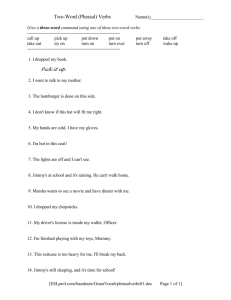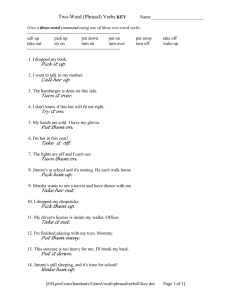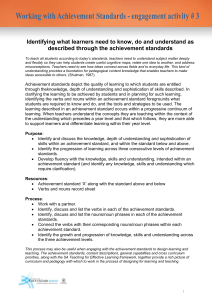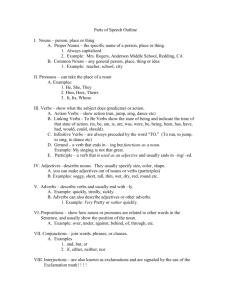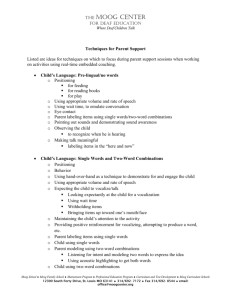Phrasal (Two-Word) Verbs
advertisement
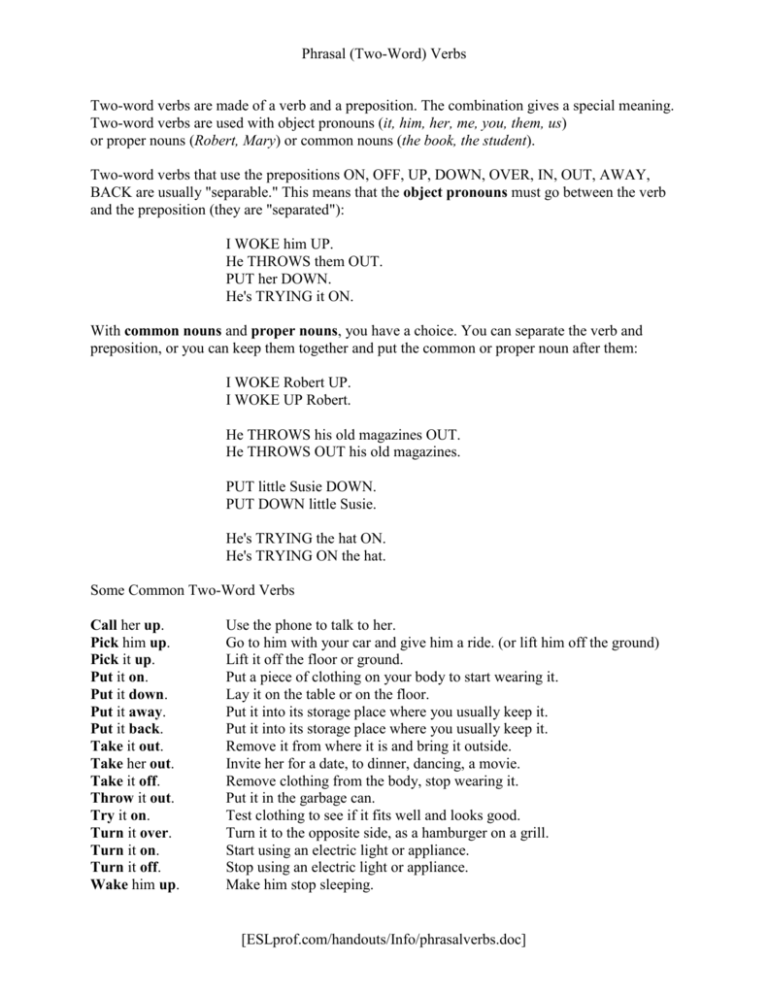
Phrasal (Two-Word) Verbs Two-word verbs are made of a verb and a preposition. The combination gives a special meaning. Two-word verbs are used with object pronouns (it, him, her, me, you, them, us) or proper nouns (Robert, Mary) or common nouns (the book, the student). Two-word verbs that use the prepositions ON, OFF, UP, DOWN, OVER, IN, OUT, AWAY, BACK are usually "separable." This means that the object pronouns must go between the verb and the preposition (they are "separated"): I WOKE him UP. He THROWS them OUT. PUT her DOWN. He's TRYING it ON. With common nouns and proper nouns, you have a choice. You can separate the verb and preposition, or you can keep them together and put the common or proper noun after them: I WOKE Robert UP. I WOKE UP Robert. He THROWS his old magazines OUT. He THROWS OUT his old magazines. PUT little Susie DOWN. PUT DOWN little Susie. He's TRYING the hat ON. He's TRYING ON the hat. Some Common Two-Word Verbs Call her up. Pick him up. Pick it up. Put it on. Put it down. Put it away. Put it back. Take it out. Take her out. Take it off. Throw it out. Try it on. Turn it over. Turn it on. Turn it off. Wake him up. Use the phone to talk to her. Go to him with your car and give him a ride. (or lift him off the ground) Lift it off the floor or ground. Put a piece of clothing on your body to start wearing it. Lay it on the table or on the floor. Put it into its storage place where you usually keep it. Put it into its storage place where you usually keep it. Remove it from where it is and bring it outside. Invite her for a date, to dinner, dancing, a movie. Remove clothing from the body, stop wearing it. Put it in the garbage can. Test clothing to see if it fits well and looks good. Turn it to the opposite side, as a hamburger on a grill. Start using an electric light or appliance. Stop using an electric light or appliance. Make him stop sleeping. [ESLprof.com/handouts/Info/phrasalverbs.doc]
